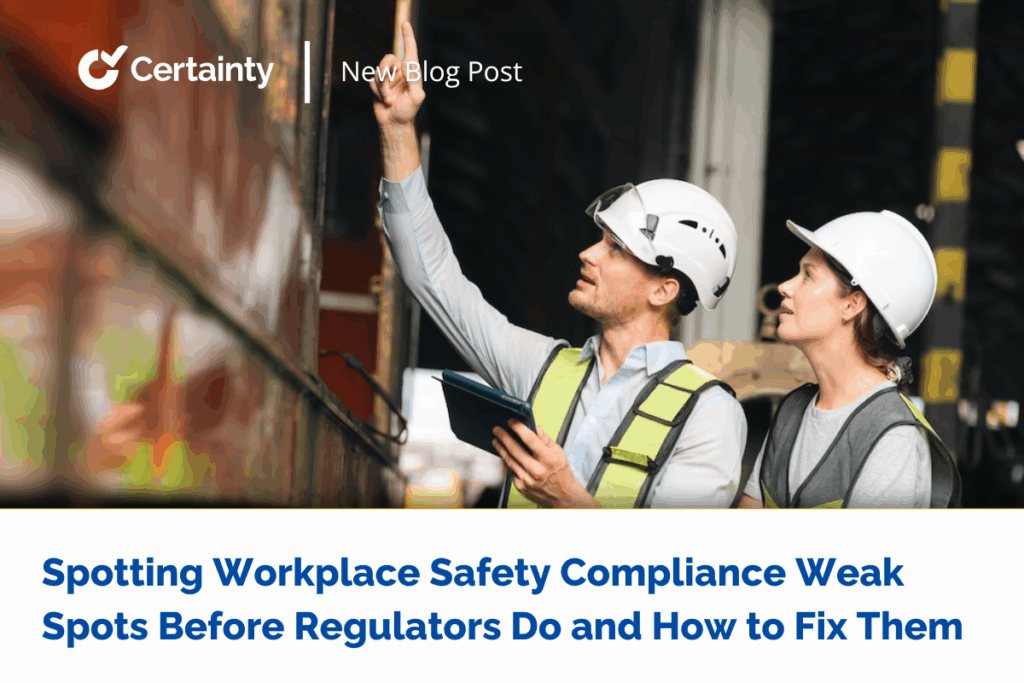Summary Workplace safety compliance is no longer a “check-the-box” activity. With better-equipped regulators, rising fines, and increasingly complex workplace risks, organizations must take a proactive approach to identifying and fixing safety gaps before inspections happen. Common weak spots like siloed data, outdated risk assessments, inconsistent inspections, and poor incident follow-up can quickly attract regulatory attention. […]

Why Spreadsheets Fall Short for Modern Audits and Inspections
Spreadsheets have long been the backbone of audit and inspection programs for safety, quality, and supply chain teams. Microsoft Excel and Google Sheets are everywhere and for good reason. They’re familiar. They’re flexible. And they’re powerful. Nearly everyone in a corporate environment has access to a spreadsheet application, making spreadsheets easy to deploy and share […]
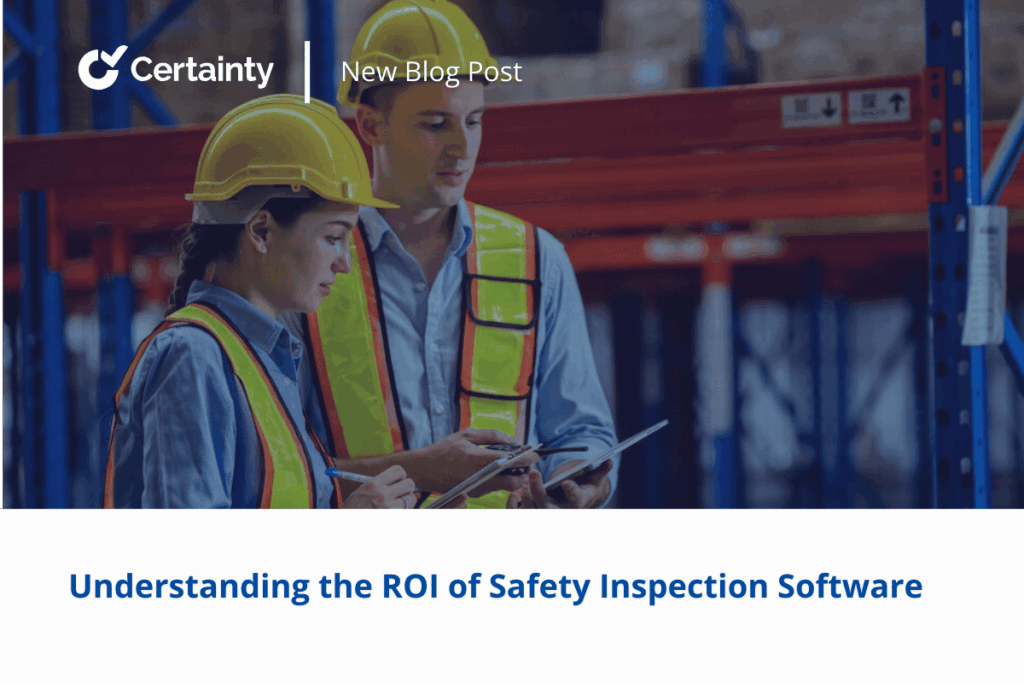
Understanding the ROI of Safety Inspection Software
Certainty Software is designed for modern compliance, giving enterprises real-time visibility, multilingual data collection, automated workflows, and centralized management that traditional paper forms and Excel spreadsheets cannot match. […]

A Mark of Excellence: Certainty Software Achieves Multiple 2025 Recognitions from Capterra, Software Advice and GetApp
What a year! We’re thrilled to announce that Certainty Software has received multiple accolades across Capterra, Software Advice, and GetApp throughout 2025. Certainty is an audit and inspection management platform designed to help organizations streamline and digitize their audit, inspection, and checklist processes. It enables users to collect data, manage corrective actions, and generate real-time […]
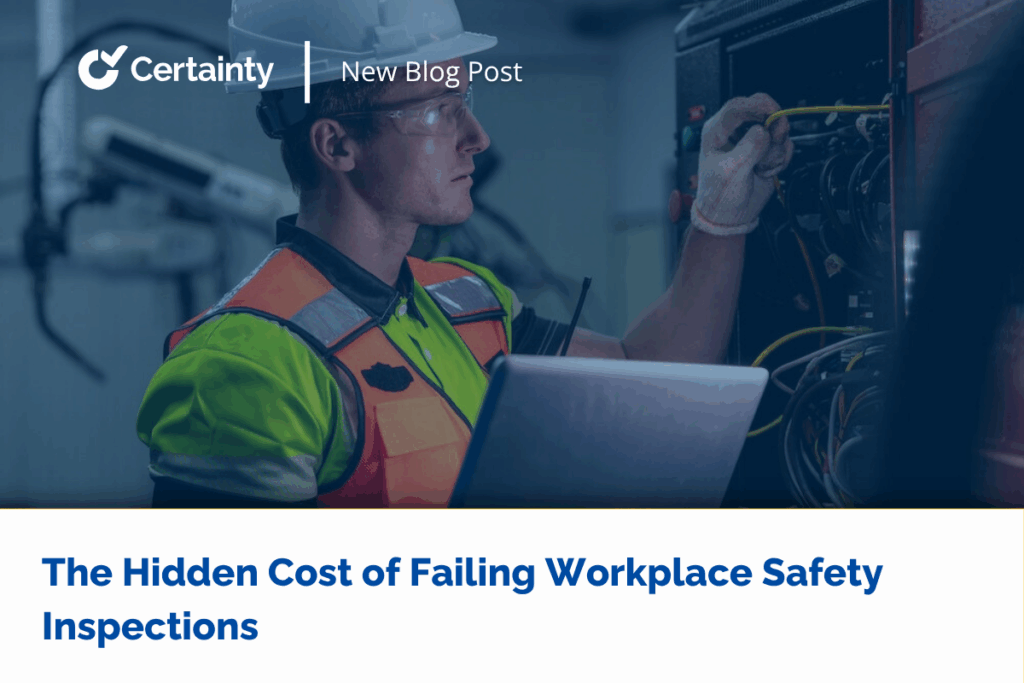
The Hidden Cost of Failing Workplace Safety Inspections
Certainty Software is designed for modern compliance, giving enterprises real-time visibility, multilingual data collection, automated workflows, and centralized management that traditional paper forms and Excel spreadsheets cannot match. […]
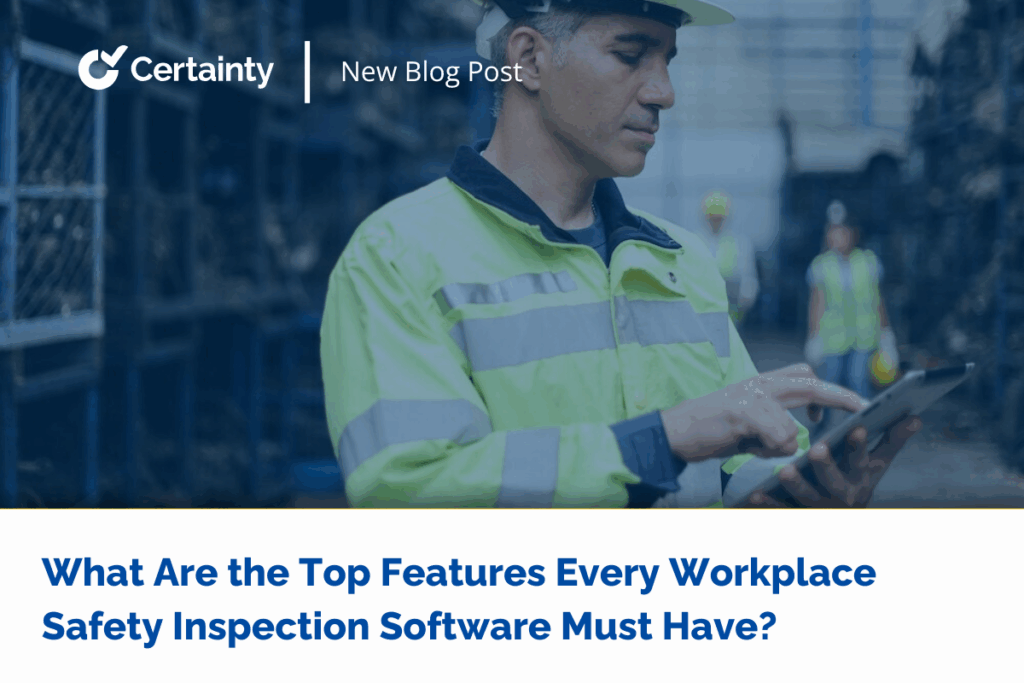
What Are the Top Features Every Workplace Safety Inspection Software Must Have?
Certainty Software is designed for modern compliance, giving enterprises real-time visibility, multilingual data collection, automated workflows, and centralized management that traditional paper forms and Excel spreadsheets cannot match. […]
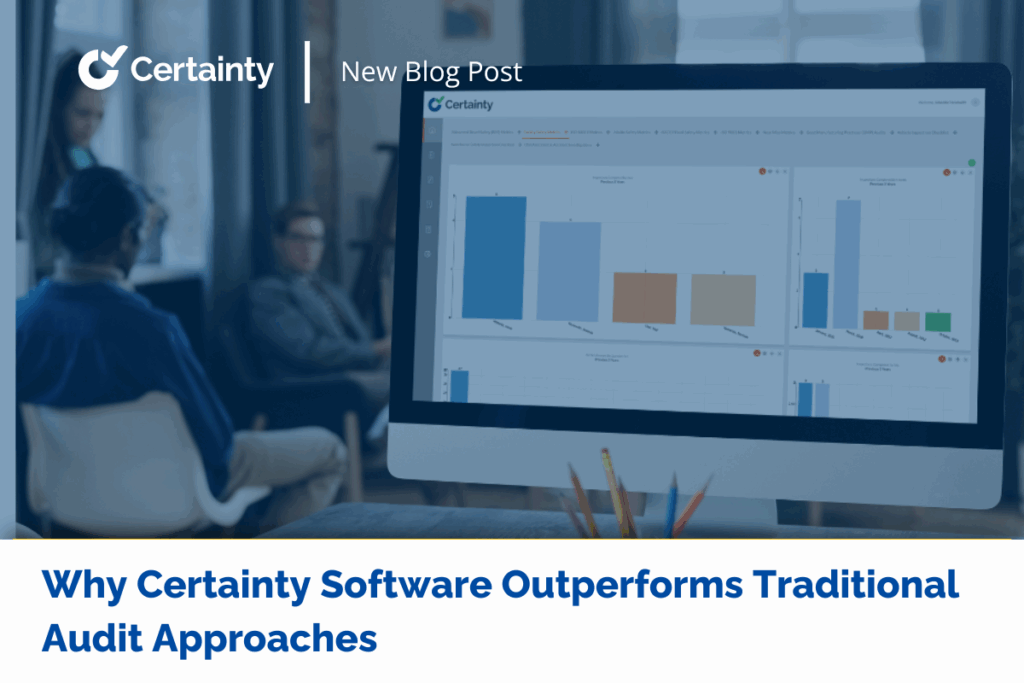
Why Certainty Software Outperforms Traditional Audit Approaches
Certainty Software is designed for modern compliance, giving enterprises real-time visibility, multilingual data collection, automated workflows, and centralized management that traditional paper forms and Excel spreadsheets cannot match. […]

AI-Enabling Technologies Transforming Safety Management
AI-enabled safety technologies are reshaping workplace safety with predictive analytics, real-time monitoring, and data-driven insights that protect workers and optimize risk management. […]

Offline or Off Track: Why Mobile Capability is Critical for Enterprise Inspections
Whether it’s a remote oil extraction site, an underground mechanical room in a legacy factory, or a supplier facility in a low-infrastructure region, field inspectors are regularly deployed into environments where Wi-Fi is unavailable and cellular coverage is patchy at best. […]
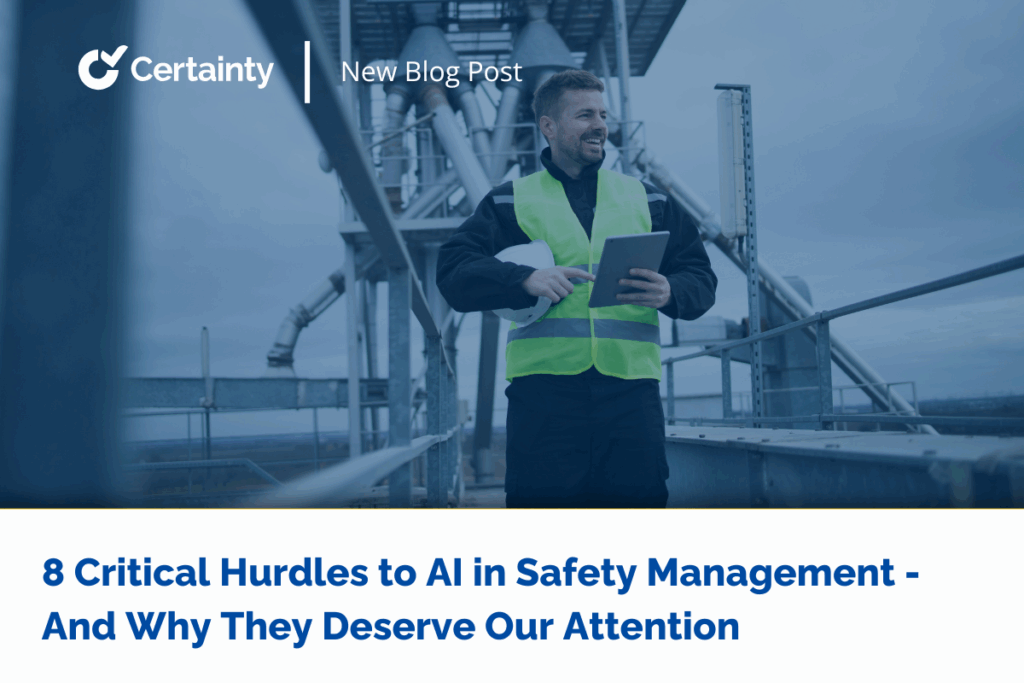
8 Critical Hurdles to AI in Safety Management – And Why They Deserve Our Attention
Drawing on research, market analysis, and the experience of practitioners and vendors in the safety tech ecosystem, the following are eight of the most formidable and most frequently encountered hurdles to AI adoption in safety management. […]

